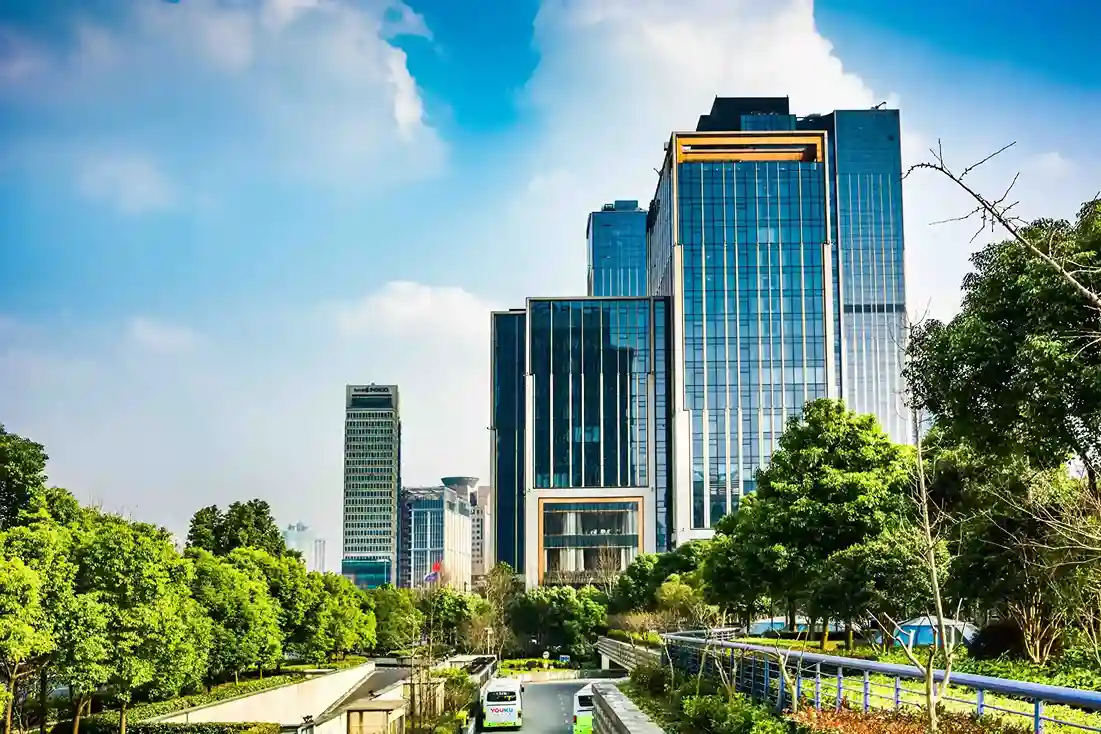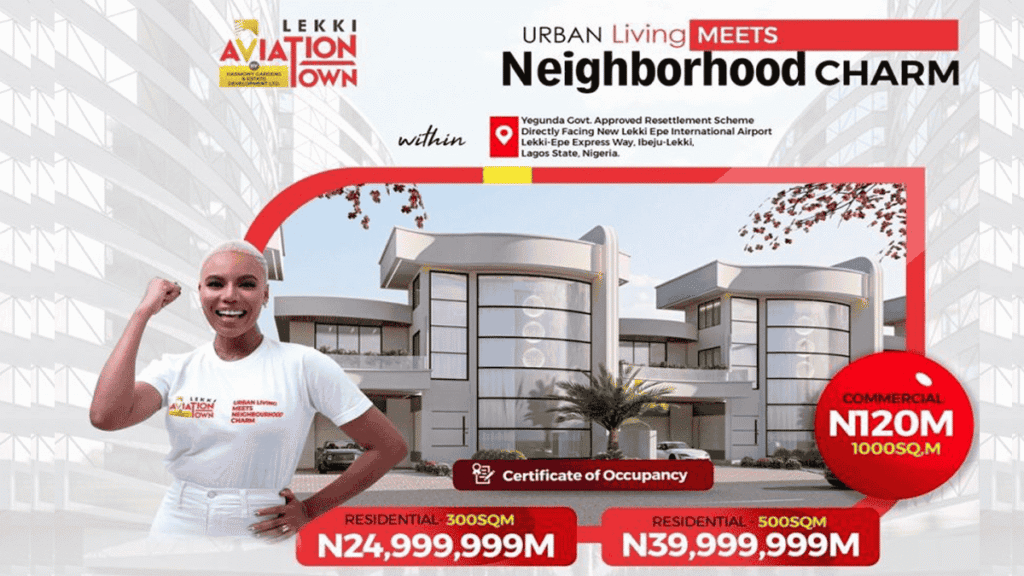
Pros and Cons of Investing in Commercial Real Estate

The Nigerian commercial real estate market is a fast-growing and dynamic sector, fueled by the country’s trade-driven economy. With a significant portion of the population being self-employed entrepreneurs and business owners, there is a constant demand for commercial spaces across various sectors, from agriculture and mechanics to healthcare, fashion, and general merchandising. This thriving business landscape makes Nigeria a fertile ground for investors seeking long-term value in retail spaces, warehouses, offices, and mixed-use developments.
This ever growing market opportunity is one that attracts investors within and outside the country as there is an ever growing demand for retail and wholesale business spaces but as everything in life, it comes with its advantages and disadvantages. Harmony Garden and Estate Development Limited provides commercial real estate at favorable locations in Lagos, Abuja, Ibadan, Port Harcourt and all across Nigeria all with best market prices and promising investment rates.

This article highlights the pros and cons of real estate commerce and how we at Harmony Garden help mitigate any shortfalls and eradicate limitations in the long term as a quintessential real estate and property development company backed by iconic national recognition as one of the top-selling firms aiming to build one of the nation’s largest real estate company in Nigeria.
Pros of Commercial Real Estate
Higher Income Potential
Commercial properties typically offer higher rental income compared to residential units. Businesses are often willing to pay premium rates for well-located and purpose-built spaces, especially in high-traffic areas. This makes commercial real estate a lucrative option for investors seeking stronger cash flow.
Longer Lease Terms
Unlike residential leases that often span 1 year, commercial leases tend to run 3–10 years or more. This provides greater income stability and reduces the hassle and costs associated with frequent tenant turnover.
Property Value Appreciation
Strategic locations and strong tenancy can drive significant capital appreciation over time. Infrastructure development and increasing demand for commercial hubs in urban or emerging cities can quickly boost property value.
Triple Net Leases (NNN)
In many commercial real estate agreements, tenants handle expenses like property taxes, insurance, and maintenance (called a triple net lease). This reduces operating costs and management overhead for the property owner.
Cons of Commercial Real Estate
High Initial Capital Requirement
Commercial real estate demands significant upfront investment, which can include land purchase, architectural planning, development or renovation costs, legal fees, and compliance with local authority regulations. Unlike residential real estate where smaller entry points are possible, commercial ventures typically require access to larger financial resources or institutional funding. This barrier can deter small-scale investors or require joint ventures and financing arrangements with higher risk.
Complex Operational Management
Managing commercial properties can be administratively and operationally intensive. You may deal with multiple tenants, each with unique needs (e.g., utility configurations, signage, hours of operation, security, parking). Building systems such as elevators, HVAC, fire safety, and maintenance also require regular inspections and servicing. Owners often need to hire professional property managers, increasing operational costs.
Economic Vulnerability and Business Risk
The performance of commercial real estate is closely tied to the health of the broader economy. During recessions or slowdowns:
- Businesses may shrink operations, default on rent, or close down
- Demand for retail or office space may decline sharply
- High vacancy rates can persist, impacting your cash flow and ROI
This makes the market more volatile and sensitive to shifts in consumer behavior, market trends, and economic policies.
Regulatory, Zoning, and Legal Constraints
Commercial properties must comply with a range of strict zoning laws, land use regulations, health and safety codes, and environmental standards. These laws vary by region and may limit what kind of business can operate in the space, how the property can be used, and what modifications can be made. Any legal noncompliance can lead to costly fines, delays, or forced closures making due diligence and legal support essential before investment.
Extended Vacancy Periods
Vacancies in commercial real estate are not only more common, but also longer-lasting. Finding the right tenant often requires:
- Customizing the space to meet their needs
- Navigating long lease negotiations
- Waiting for market recovery if demand is low
Unlike residential units, where vacancies might last weeks, commercial properties can remain empty for months or even years, especially in niche sectors like warehousing, medical suites, or in less accessible locations.
Read: Harmony Garden Tackling Housing Deficit Agendas
Are you thinking of purchasing residential properties in Nigeria? Harmony Garden and Estate Development Limited is at your service. Contact Us at your nearest convenience and we will schedule you for a meeting to provide property details and answer any questions you might have.

Harmony Garden Properties
Harmony Garden and Estate Development Limited is a prominent real estate and property developer in Nigeria committed to building and serving the nation’s real estate market as far as Lagos, Abuja, Ibadan, Port Harcourt and all across Nigeria. The company backed by iconic national recognition as one of the top-selling firms in Nigeria.
Investing in real estate commercial properties is a solid means to securing your financial future whether you’re buying for personal use or letting purposes choosing Harmony Garden and Estate Development Limited means choosing peace of mind and maximum returns.

















